第21章 Chapter IV. Helping Others(3)
During these two weeks I was taught a lesson which I shall never forget. Miss Mackie was a member of one of the oldest and most cultured families of the North, and yet for two weeks she worked by my side cleaning windows, dusting rooms, putting beds in order, and what not. She felt that things would not be in condition for the opening of school unless every window-pane was perfectly clean, and she took the greatest satisfaction in helping to clean them herself. The work which I have described she did every year that I was at Hampton.
It was hard for me at this time to understand how a woman of her education and social standing could take such delight in performing such service, in order to assist in the elevation of an unfortunate race. Ever since then I have had no patience with any school for my race in the South which did not teach its students the dignity of labour.
During my last year at Hampton every minute of my time that was not occupied with my duties as janitor was devoted to hard study.
I was determined, if possible, to make such a record in my class as would cause me to be placed on the "honour roll" of Commencement speakers. This I was successful in doing. It was June of 1875 when I finished the regular course of study at Hampton. The greatest benefits that I got out of my at the Hampton Institute, perhaps, may be classified under two heads:--
First was contact with a great man, General S.C. Armstrong, who, I repeat, was, in my opinion, the rarest, strongest, and most beautiful character that it has ever been my privilege to meet.
Second, at Hampton, for the first time, I learned what education was expected to do for an individual. Before going there I had a good deal of the then rather prevalent idea among our people that to secure an education meant to have a good, easy time, free from all necessity for manual labour. At Hampton I not only learned that it was not a disgrace to labour, but learned to love labour, not alone for its financial value, but for labour's own sake and for the independence and self-reliance which the ability to do something which the world wants done brings. At that institution I got my first taste of what it meant to live a life of unselfishness, my first knowledge of the fact that the happiest individuals are those who do the most to make others useful and happy.
I was completely out of money when I graduated. In company with our other Hampton students, I secured a place as a table waiter in a summer hotel in Connecticut, and managed to borrow enough money with which to get there. I had not been in this hotel long before I found out that I knew practically nothing about waiting on a hotel table. The head waiter, however, supposed that I was an accomplished waiter. He soon gave me charge of the table at which their sat four or five wealthy and rather aristocratic people. My ignorance of how to wait upon them was so apparent that they scolded me in such a severe manner that I became frightened and left their table, leaving them sitting there without food. As a result of this I was reduced from the position of waiter to that of a dish-carrier.
But I determined to learn the business of waiting, and did so within a few weeks and was restored to my former position. I have had the satisfaction of being a guest in this hotel several times since I was a waiter there.
At the close of the hotel season I returned to my former home in Malden, and was elected to teach the coloured school at that place. This was the beginning of one of the happiest periods of my life. I now felt that I had the opportunity to help the people of my home town to a higher life. I felt from the first that mere book education was not all that the young people of that town needed. I began my work at eight o'clock in the morning, and, as a rule, it did not end until ten o'clock at night. In addition to the usual routine of teaching, I taught the pupils to comb their hair, and to keep their hands and faces clean, as well as their clothing. I gave special attention to teaching them the proper use of the tooth-brush and the bath. In all my teaching I have watched carefully the influence of the tooth-brush, and I am convinced that there are few single agencies of civilization that are more far-reaching.